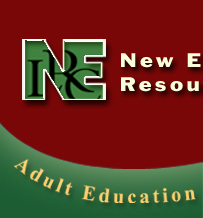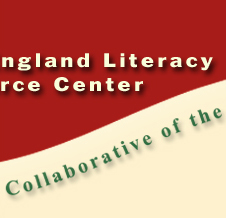
The Public Education Program Promoting Immigrants as Assets to America
Program:
The Immigrant Learning Center, Inc. (ILC)
442 Main Street, Malden, Massachusetts 02148
Tel. 781.322.9777 Fax. 781.321.1963
www.ilctr.org
Mission
Established in 1992, the mission of The Immigrant Learning Center, Inc. (ILC) is to provide free English classes to immigrant and refugee adults so they can lead productive lives in the United States and become successful workers, parents and community members. In 2003 the mission was expanded to promote immigrants as assets to this country.
Services
The ILC serves about 800 immigrants and refugees annually. In FY 2005, students came from 68 countries, lived in 44 communities in the Boston area, and spoke 44 native languages. The ILC offers six levels of ESL classes as well as ESL Family Literacy and Citizenship preparation classes, free of charge. Each class meets five days a week for a total of 15 hours of weekly instruction. In addition, The ILC ABE program provides four levels of classes in Reading, Writing, Grammar, and Conversation, as well as GED and TOEFL preparation in the afternoon program for a total of ten hours weekly. All classes are complemented by computer literacy classes. The ILC provides support services to students through a full-time guidance counselor.
Rationale and Background of the Practice
The ILC Public Education Program evolved in response to the growing anti-immigrant sentiment following the September 11, 2001 attacks on the World Trade Center. It was becoming increasingly difficult for ILC students to find success in their communities and the workplace. Therefore, The ILC established a permanent Public Education Program in July 2003 to educate the public – teachers, business people, elected officials, policy makers, and the general public – about the positive impact immigrants have on the country, the economy, and communities. In an unusual move for an adult literacy center, the agency raised the funds and hired a full-time Public Education Program director to lead the effort.
Description of the Practice
While it is still an evolving program, the Public Education Program has four components:
1. Business Sector Studies
The ILC commissions research studies to look at how immigrants
positively impact the economy as entrepreneurs, customers,
and workers and disseminates the results to the business
community, public officials, policy makers, and social
service providers. As of November 2005, two studies have
been completed. The first study, “Immigrant Entrepreneurs
and Neighborhood Revitalization,” looked at immigrant
small business owners in three Boston neighborhoods – East
Boston, Allston Village, and Fields Corner – and
how they have contributed to the rebirth of these neighborhoods.
Immigrants and key community informants were interviewed
by two research teams, the Asian American Institute and
the Gaston Institute at the University of Massachusetts
Boston. The second study looked at immigrants as homebuyers
in Lowell and Lawrence and how they have positively impacted
the real estate market and those two communities. This
research was conducted by Jorge Santiago of Northern
Essex Community College and James Jennings of Tufts University
and also involved interviewing immigrants and key community
informants. These studies will be published, distributed,
and presented at forums as of December 2005. An article
summarizing the findings of the research on immigrant
entrepreneurs appeared in the Federal Reserve Bank of
Boston magazine Communities & Banking, the
Summer 2005 edition. It is anticipated that numerous
articles summarizing the results will appear in newspapers
locally, regionally, and nationally. The next study will
focus on immigrants in the health care industry. For
more information see www.ilctr.org.
2. Professional Development for Teachers
The ILC recognizes that teachers have great influence over
future generations. They need an accurate picture of
immigrant contributions to teach about immigration. Therefore,
The ILC conducts summer forums for K-12 and adult education
staff that carry professional development points. These
forums are facilitated by Dr. Marcia Drew Hohn, The ILC’s
Director of Public Education. The ILC also developed
and piloted an online graduate level course titled “Teaching
Immigration Across the Curriculum” at the University
of Massachusetts Boston during the summer of 2005. This
course will be offered again during the summer session
of 2006.
3. Newspaper Articles
The ILC is working with the Boston Herald’s Newspapers
in Education Program to launch a series of seven weekly articles
starting November 2005. These articles will present the individual
immigrant stories of ILC students, facts and figures about
immigrants and immigration, and teaching ideas.
4. The Immigrant Theater Group
To educate the public about the positive impact of immigrants,
it is necessary to not only reach people’s minds
but also their hearts. The Immigrant Theater Group is
a high level ESL class where students learn English through
theater. They write and perform plays about the immigrant
experience that vividly portray their hardships and hopes
as they learn to navigate the complex systems of this
country from learning about the culture to getting and
keeping a job to obtaining further education.
One class period a week is spent at Malden Access Television (MATV), the local cable television studio, where students learn how to operate the equipment and videotape their plays. They perform their plays for diverse groups of audiences including high school students, adult students, senior citizens, and the general public. Audiences are deeply moved by these plays and begin to realize there is much more that brings us together than tears us apart. Audiences learn of the sacrifices immigrants make to come to America to create better lives for their children. To date, one play has been taped by MATV and is in national distribution in 11 states. The next play will be taped in 2006.
Challenges
The major challenges are raising the required resources and funding; gaining support for the mission expansion from the school’s major stakeholders (including from a couple of ILC Board members); keeping the emphasis on education and providing information and not directly doing advocacy work.
Evidence of Impact and Effectiveness
The anticipated long-term impact of the Public Education Program is to change public policy and discussion to be more favorable toward immigrants, to reflect a view of immigrants as assets. At present, the evidence of impact is mostly anecdotal based on individual testimonials. Teachers report a better understanding of immigration and how to teach it. Business people, public officials, and the press are showing an interest in the studies. The ILC has gained increased visibility and credibility through the Public Education Program. Potential funders have approached The ILC after having learned about the business sector studies.
The ESL Theater Class has had multiple positive impacts. This past year 29 students speaking 11 languages participated. Attendance was very high at 82 percent per cycle. To date, the class has performed its plays seven times to external audiences. In addition, five of the students volunteered in The ILC Literacy class as classroom aides and peer tutors.
While it adds an important dimension to the Public Education Program, the class is also an effective way to teach ESL at a more advanced level. When asked about the ESL Theater Class, students had many positive things to say. They emphasized the value of developing confidence in speaking English. One student commented, “We learn to improvise with language in real life. You can’t always remember the grammar.” Another one added, “I learn to mix English with American culture and my life.” All students agreed that they learn to listen and pronounce words better in English as they rehearse and perform plays. They find it exciting and motivating to write plays based on their lived experiences and to perform to real audiences. Several students mentioned that they have learned how to put themselves in another person’s shoes and see issues from multiple perspectives, a goal many educational programs strive to attain.
The fact that the class has prompted a collaboration with MATV is in itself a positive outcome. Many of The ILC Theater Class productions are aired on the cable channel, thus contributing to the station’s programming. The programs, of course, highlight local immigrants’ lives and provide visibility for The ILC. The students learn video production skills that some of them may develop further into marketable skills.
Cost & Staffing
The ILC employs one full-time Public Education Program director. Funding comes from the private sector. The ESL Theater Class is also privately funded. The total yearly cost of the Public Education Program, excluding the ESL Theater Class, is $250,000, which includes salaries, benefits, research and publication, consultants, scholarships for forum and graduate course participants, rent, and supplies. The yearly cost of the ESL Theater Class is $42,000 and includes salaries, benefits, rent, instructional and office supplies, and maintenance of equipment.
Implications for Practice, Policy and Research
To replicate the Public Education Program would require most agencies to raise additional funds for a staff person to lead it. That, in turn, requires a clear rationale and vision for the program with perhaps initial evidence of the agency’s capacity to take it on. Programs interested in this endeavor might do well to form partnerships that allow cost-sharing.
To replicate the ESL Theater Class, the level needs to be high enough for students to be able to understand each other’s spoken English most of the time. The ESL teacher should have training and background in theater arts in order to lead students in producing vignettes and plays. Finally, collaboration with a local cable access station can significantly enhance the appeal and effectiveness of the class. The weekly videotapes of student rehearsals are instrumental in building students’ listening and speaking skills.
A public education program, such the one at The ILC, falls outside of public funding and related policies. It reflects an expansive vision of a role that an adult education program can play in educating the public and policy makers about the needs and contributions of its students. A case study of The ILC’s efforts and the full impact of those efforts would illuminate the potential influence an enterprising adult education program can have on its community and the general public.



